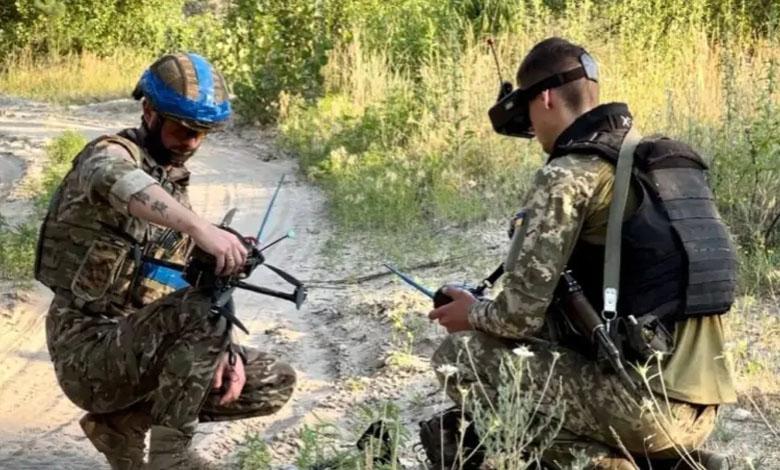Money went to war: why the US is cutting climate projects for the sake of defense

While Europe rapidly reorients civilian industry to the military, investing billions in defense and facing personnel, resource and reputational challenges, in the USA sharply change even “climatic” startups are a vector. Now the bet is not on the abstract fight against climate change, but on the specifics – national security and defense.
The reason is simple and hard: political and financial support for green projects is weakening, and those who are able to quickly adapt to new challenges survive. And the main challenge today is the strengthening of the military industry of the United States against the background of the growing threat from China.
This transformation is a classic example of how businesses that want to survive and grow must “keep their nose in the wind” in the political and economic environment. The green romance is over. A new race has begun – and only those who manage to take their place in the new military-industrial chain will survive.
War instead of climate: how the US technology market is coming under the dictates of national security
The latest political signals from Washington demonstrate a shift in America’s technology funding strategy. The rhetoric of climate goals recedes into the background, while defense and national security come first. This is no longer just a trend, but a systemic transformation of state policy, which is hitting “green” projects and pushing startups into a new niche – the war for resources and technology control.
The Trump administration’s decision to review and actually curtail the key instruments of Biden’s climate policy – the Inflation Reduction Act – signals that America will no longer play the “green” economy at the current geopolitical stakes.
It is about eliminating tax incentives for electric cars, destroying incentives for investing in renewable energy and redirecting resources to the military-industrial complex. This is not just a review of approaches – it is actually a rejection of climate priorities in favor of an arms race.
Trump’s transition team prepared a plan to roll back infrastructure subsidies for electric cars and roll back emissions standards to 2019 levels – a time when America still openly supported oil companies and didn’t care about CO₂ emissions.
Even those startups that were created as “saviors of the planet” are now urgent change pitches for investors. Magrathea Metals, which promised to extract magnesium from seawater for green energy, is now spinning a different record: “we will ensure America’s independence from China in critical minerals for fighter jets and drones.” No longer a planet, but F-35 and missiles.
Another example is the company Brimstone, which previously created “clean” cement to reduce CO₂ emissions, and now quite seriously presents the project as a strategic development to restore the industrial power of the United States in the production of steel and aluminum – for the army and the defense industry.
Even the startup VEIR, which until recently was concerned with “green” incubators with technologies for energy, is now reviews priorities Instead of green hype – a new bet on AI and other areas where there is money and demand.
Last year, the volume of investments in American military startups and defense technologies reached $39.5 billion dollars. This is a signal to the market: those who do not transform will remain without funding.
This is the bifurcation point for American technology startups: either you create AI for military use today, or you disappear from the market tomorrow. And only those who can show a direct military-industrial benefit from their “ecological” developments will continue to survive in green energy.
Capital chooses war: “green” energy gives way to drones and military AI
So, the situation on the investment market has changed dramatically. Slogans about “green energy” and ESG (environmental, social and corporate governance – an approach to conducting business and investing that takes into account not only the company’s financial indicators, but also its impact on the environment, attitude to people and the quality of management), which Silicon Valley venture funds boasted yesterday, are losing relevance today. The money went to where the real war is: to the defense industry and military AI. This is no longer a trend, but a strategic reversal of Western capital.
Specific agreements clearly fix a new reality. A typical example is the German startup Helsing, which directly creates “artificial intelligence for war”. The company develops software for drones and combat control systems, and already supplies attack drones to Ukraine. They are financed by Spotify co-founder Daniel Ek, who invested 100 million euros in Helsing. Previously, such investors would have invested in the next “solar panels”. Now – only in the technology of victory.
Another case is the Belgian state financial structure Belfius announced on plans for direct investment in arms and military technology manufacturers across NATO. Previously, such institutes “played” exclusively in the green agenda. Now the course for the defense industry.
Kyiv does not stand aside from this trend either. Ukrainian venture capital firm D3 (Defence-focused Venture Capital), headed by Evelina Buchachka, has opened stated, which will finance only defense startups. And he will not just finance, but is already actively building communication with European generals and military investors.
The days when a “green” startup could come out with a presentation about saving the planet are over. Now those who talk about new drones, artificial intelligence for the front and projects capable of changing the course of war are counting on money. This is the new agenda of the West. The war for the defense technology market is just beginning.
Those Who Speak the Language of War Survive: How Startups Are Sabotaging Missions for Defense Money
From here begins the most interesting thing is the conflict of values within the startups themselves, which yesterday were building a business to save the planet, and today are forced to adapt to the realities of a major war. And the question is not just about money, but whether the founders are ready to break their own mission for the sake of survival.
Take the same startup Magrathea Metals. Their origin story sounded it is beautiful and correct – to extract magnesium from sea water, reducing the carbon footprint and helping “green” energy. But reality forces you to stand on the ground with both feet – the money went to the defense industry. And now the company’s CEO openly declares to investors: “Our magnesium is a critical raw material for fighter jets and drones, and America must become independent from China.” No mention of ecology – survival dictates a new rhetoric.
The case of Brimstone, a startup that developed cement with a low carbon footprint, is also illustrative. It would seem – here it is, a clean future. But in the past year, they have already established themselves as a key player in the production of steel and aluminum for the US defense industry. Now it’s not about the planet, but about the war and about “building tanks faster than the Russians.”
The next case – Swarmer. Just a year ago, these were dreams of “autonomous swarms of drones” in the future. Today, this is already a working combat technology, which use units of the Armed Forces. Their artificial intelligence allows drones to interact as a flock: attack, scout, work without an operator. Investors too demonstrative: $2.7 million from the American defense company R-G.AI, Radius Capital, Green Flag Ventures and D3. And these are straight lines money to the army, to Ukrainian drones at the front.
Bavovna.AI started as an AI project for autonomous systems. They honestly planned to make decisions for the civilian market as well, but Russian aggression and new challenges at the front changed everything. Currently, the company creates navigation systems for drones capable of working without GPS, in conditions of complete suppression of signals and EW.
And not just creating – last year received $2.7 million investment, investors – Prague fund Presto Tech Horizons. And the most important thing – we entered into cooperation with the US Ministry of Defense, got into the US Air Force Labs Masschallenge program. This is no longer about the “startup ecosystem”, but about war, where every technology must produce results on the battlefield.
And the question remains: is this a temporary marketing game or a real change in the mission of these companies? Some startup founders simply cannot stand this pressure. The CEO of one of the climate companies admitted: “We can no longer raise money on the “green” agenda. We are being asked to rewrite the pitch – emphasize national security, otherwise there will be no grant.”
…The world is changing faster than we have time to update our presentations. Just yesterday, investors were eagerly catching every word about “green startups”, “ethical artificial intelligence” and “technology for peace”. Yesterday it sold, convinced, fell in love with an idea. But today are different times. The stories we see illustrate a simple and unpleasant truth: beautiful rhetoric ends where real war begins.
Now it is not grants and investments that count. Combat sorties, hit targets are counted. And those who managed to understand survive: the new language is the language of war and defense. The rest will remain in textbooks about the romance of Silicon Valley of the early 2000s – in those chapters where naive and in love with a bright future startups dreamed of saving the planet.
Those who yesterday built solar panels and counted the carbon footprint are today counting the drones that can harvest their technology. And the winner here is not the one who is cleaner. And the one who first understood the new rules of the game.
The world has changed. And in this new game, it is better to be the one who speaks the language of war than the one who still dreams of the language of peace.
Tetyana Viktorova





